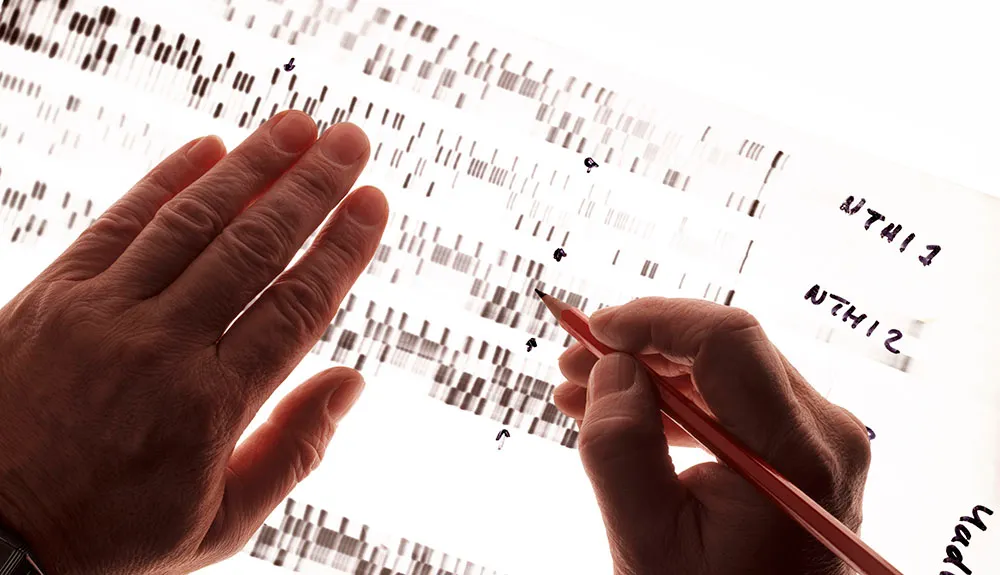1
Who owns our DNA?
Police forces have been compiling large databases of DNA profiles for years, sometimes from people they’ve arrested but then released.

Having the DNA profile of everyone in the country might seem like a detective’s dream, but others say it turns everyone into a suspect and infringes on privacy rights.
With DNA-testing companies and the NHS also collecting DNA samples en masse, there’s no easy answer to the question of who actually owns your genetic code, or what they can do with it.
Read more about forensic science:
- What is forensic science?
- DNA: A timeline of discoveries
- Forensic genealogy: how the police are using family trees to solve cold cases
- Crime writer Val McDermid on real-life forensic science
- How to use DNA databases to catch the perpetrator of a crime
2
How to police the digital world

Government security agencies are locked in a battle with technology giants over how to access evidence they say is crucial to preventing terrorism.
Surprisingly, even the FBI’s in-house digital experts can’t unlock encrypted iPhones without the help of Apple.
Even more worrying for security services is the burgeoning art of digital steganography – hiding secret messages within seemingly benign files such as holiday photos.
3
Can DNA tell us what a suspect looks like?
Scientists have been able to map how certain genes are linked to certain facial features, but this relationship is immensely complex and not yet accurate enough to be useful.

A DNA sample is also unlikely to ever be able to tell us whether someone is overweight or sun-tanned, as these are environmental, and not genetic, characteristics. Besides, you can always put on glasses or grow a beard.
- This article first appeared in issue 293 ofBBC Science Focus–find out how to subscribe here
